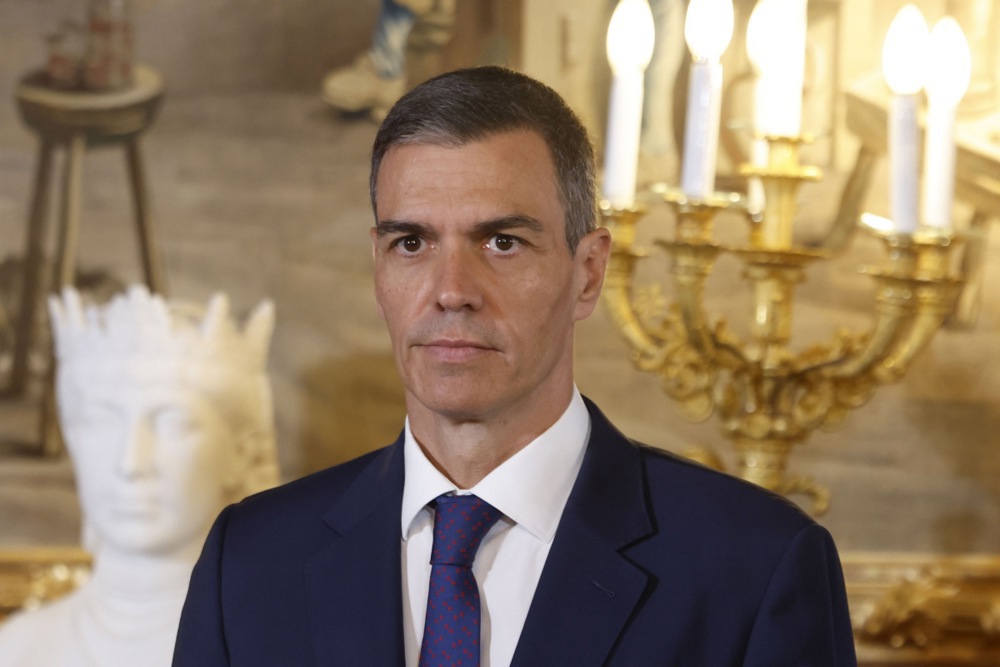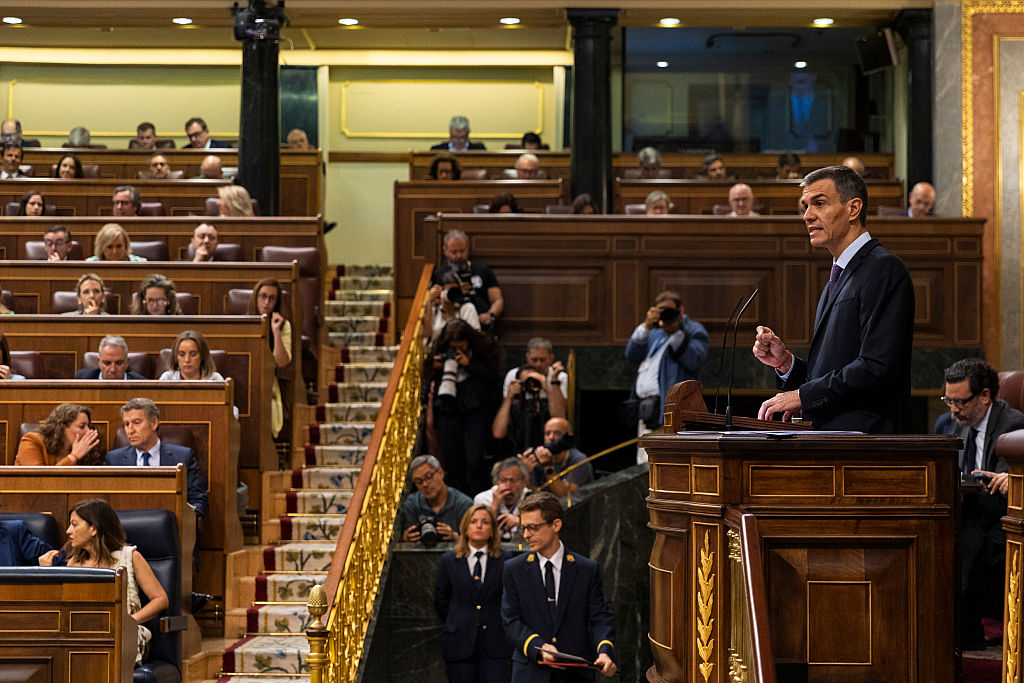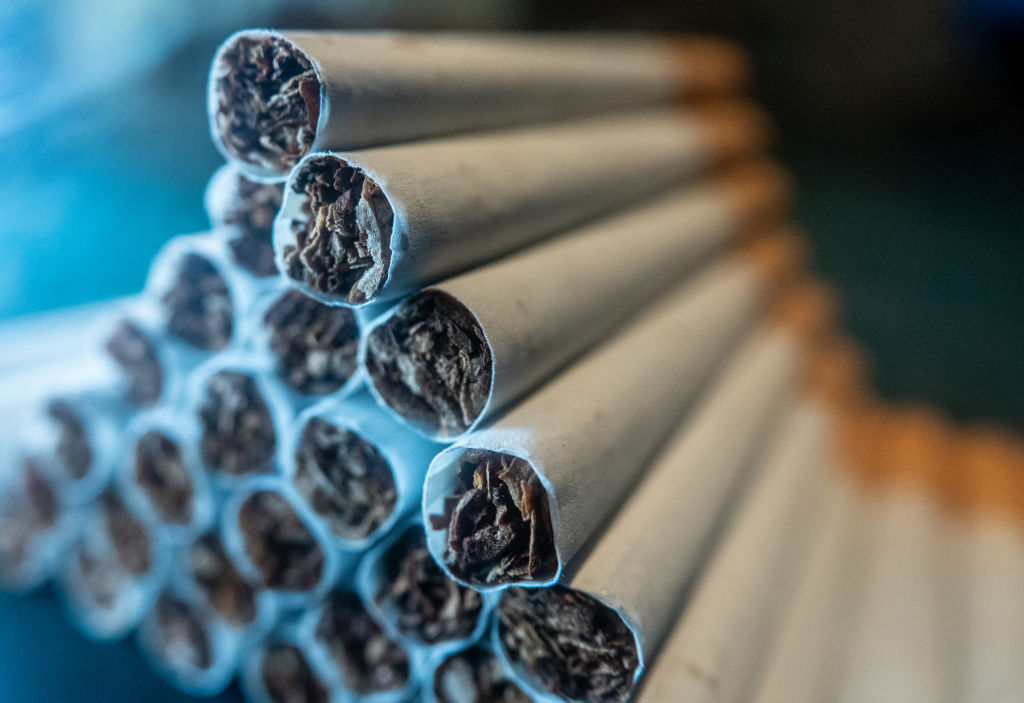Spain is failing to tackle corruption, a report from the Council of Europe has found.
The report, named the Fifth evaluation report preventing corruption and promoting integrity in central governments and law enforcement agencies, came at a painful moment for the country, as the Socialist-led government has been engulfed in several scandals and cases of serious corruption.
While the report was approved in early June and referred to the Spanish Ministry of Foreign Affairs on June 6, Prime Minister Pedro Sánchez’s government reportedly wanted the release of it on August 1, timed to coincide with the holiday exodus.
With this, Sánchez could also avoid the matter in the Spanish parliament, where he has been under attack from the opposition while promoting his new anti-corruption plans in a 15-point reform agenda.
In its compliance report, adopted during its June 2025 plenary meeting, GRECO, the Council of Europe’s Group of States against Corruption, noted “a lack of decisive action and tangible results regarding the recommendations issued in respect of top executive functions of the central government”.
In 2019, GRECO had made a list of 19 recommendations but Spain only implemented it partially, ignoring three key recommendations designed to tackle corruption.
Authorities in Spain have searched the ruling Socialist Workers’ Party (PSOE) HQ in Madrid to retrieve the emails of the former secretary of the party Santos Cerdán following corruption allegations. https://t.co/c8jg1cOZvT
— Brussels Signal (@brusselssignal) June 23, 2025
Those recommendations can be related to the main scandals surrounding the current government, namely the control of government advisers, oversight of the police and the Civil Guard to strengthen their transparency, objectivity and proportionality.
“No measure has been taken to reform the special procedure of the criminal liability regime for members of the government” and the Office for Conflict of Interest “is still not really independent and does not have its own budget”, the report stated.
In the case of advisers, GRECO urged Spain to tighten its framework, subjecting them to the same transparency and integrity standards as senior officials. The government had pledged to introduce such oversight via a new open administration law, to be adopted by the Council of Ministers in early 2025 as part of the Democracy Action Plan approved on September 17 last year.
When Sánchez addressed Congress in July, though, not only had the law not been approved, it was not even listed in the 2025 Annual Policy Plan. He made no mention of it either.
The government’s anti-corruption plan merely extends to advisers a handful of measures intended for senior officials, such as rules on conflicts of interest and disclosing meetings with lobbyists.
These measures remain well below GRECO’s recommendations and appeared inconsistent with allegations of corruption by former minister José Luis Ábalos and his former advisor Koldo Garcia, in light of the government’s self stated commitment to “zero tolerance” of corruption.
New details have emerged in a corruption scandal involving individuals linked to Spain’s Socialist Party, with authorities suspecting they siphoned millions of euros in public funds. https://t.co/Bhfl1Hdo8f
— Brussels Signal (@brusselssignal) June 30, 2025
On the issue of legal immunity, GRECO has urged Spain to reform the current system so it does not obstruct criminal proceedings against government members suspected of alleged corruption-related offences.
Ángel Luis Gallardo, leader of the Socialists in the region of Extremadura, invoked this immunity in a case investigating the allegedly irregular hiring of the Prime Minister’s brother, David Sánchez, by the Badajoz provincial council in 2017.
Begoia Gomez, the wife of PM Sánchez, is the subject of an investigation over alleged corruption and trading in influence,
Despite repeated calls from GRECO since 2019, the government has avoided reforming the system to prevent such alleged abuses.
Sánchez’s anti-corruption plan, despite being aware of the issue, makes no mention of any changes, just as it overlooks the long-requested review of the disciplinary regime for the police and civil guard.
GRECO has consistently called for reform to prevent disciplinary decisions from being made solely at the discretion of a supervisor and has criticised the government for failing to recognise this.
It “noted the lack of any development in this area and regretted that the authorities did not recognise it as a problematic area in real need for improvement”.
The anti-corruption body concluded “that Spain has not implemented satisfactorily or dealt with in a satisfactory manner any of the 19 recommendations contained in the Fifth Round Evaluation Report”.
GRECO said it regretted the lack of decisive action and tangible results in light of the recommendation. Regarding the Police and Civil Guard, it noted some steps had been taken but stressed that key shortcomings remained.
The anti-corruption body urged further decisive action to ensure full implementation of anti-corruption and integrity measures within law enforcement agencies.
Spanish authorities were called to submit a report on the progress made in their implementation of all its recommendations by June 30, 2026.
PODCAST: "Greek corruption worse than Spain’s!"@ThatAlexWoman and @JustinStares are joined by Brussels Signal Columnist and former Greek MP @BogdanosK to dig into the latest wave of scandals shaking Greece. https://t.co/ypEkwp7SPN
— Brussels Signal (@brusselssignal) July 4, 2025





